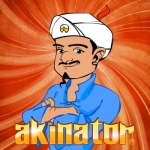
Chinese Horoscope Plus Pro - Read Daily and Yearly Astrology for Every Zodiac Animal Sign in the Calendar Fortune Teller about Love Career Health Wealth
Lifestyle and Reference
App
2015 Yearly horoscope included! Read your chinese horoscopes every day on your phone. With Chinese...

Horoscope Plus Pro - Read Daily Weekly Monthly and Yearly Astrology for Every Zodiac Sign Fortune Teller about Love Compatibility Teens Money Career Flirt Singles and Couples
Health & Fitness and Lifestyle
App
2015 Yearly horoscope included! Read your daily, weekly, monthly horoscopes and a lot more :) ...

Akinator VIP
Entertainment and Games
App
The famous Genie needs to take up challenge. To help him, go in search for Aki Awards... Akinator...

Best Budget Planner+ Daily Budget,Spending Tracker
Finance and Productivity
App
•••Featured by Apple as 'Best New App', 'Editors Choice'••• •••In 2014 - 2016, has...

Battery Doc - Professional Care and Information
Productivity and Utilities
App
Providing useful and relevant data revolving around battery health and general device information on...

LiveCollage Classic - Instant Collage Maker
Photo & Video and Entertainment
App
#1 in over 100 countries! Highly recommended by over 50 million users! Create fun, well-designed...

PushPress Timer Pro
Health & Fitness and Utilities
App
The PushPress Timer is the cleanest, easiest, most amazeballingest Timer out there. Built with high...

Cosmopolitan Magazine US
Lifestyle and Magazines & Newspapers
App
Subscribe now and get INSTANT access to the latest issue! This month, Kate Hudson dominates the big...

Risk & Insurance magazine
Business and Magazines & Newspapers
App
The leading risk management and commercial insurance magazine is now available on the iPad and...

Hanging With Friends
Games and Education
App
The creative geniuses behind Words With Friends are pleased to bring you your next word game...